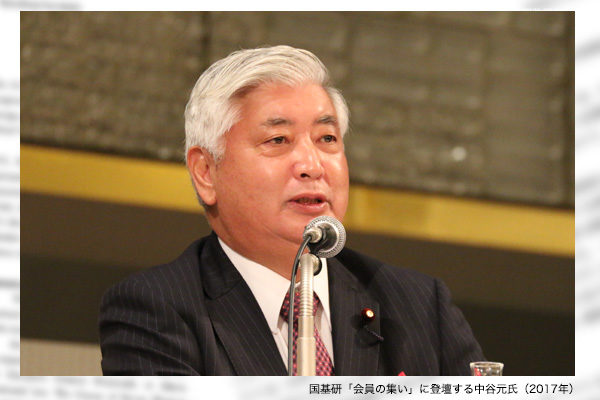Prime Minister Fumio Kishida has created the post of assistant to the prime minister in charge of international human rights issues in an apparent attempt to promote his administration’s human rights diplomacy. But the attempt is likely to fail because Gen Nakatani appointed to the post has shown a cautious attitude towards human rights sanction legislation and other relevant measures.
Sympathetic to China to resolve problems?
In a BS Nippon TV program on November 15, Nakatani said the Kishida administration is sympathetically listening to what China says, instead of unilaterally criticizing its human rights abuse. He made the remark when he was asked if the administration focuses on economic relations with China and is hesitant about raising human rights issue.
On the ruling Liberal Democratic Party’s junior coalition partner Komeito’s cautious attitude against enacting a Japanese version of the U.S. Magnitsky Act to impose sanctions on foreign officials involved in human rights abuse, “one option might be to unilaterally impose values and enforce sanctions, but there is another option that is to sympathetically resolve issues,” said Nakatani. “Options are not limited to making waves.” Does Nakatani intend to be sympathetic to China now under international fire for human rights abuse?
Trade ministers from the Group of Seven industrial democracies at their meeting in October adopted a joint statement calling for eliminating forced labor in global supply chains. On the statement designed to exert pressure on China over its forced labor, Japanese Economy, Trade and Industry Minister Koichi Hagiuda said, “the development of an international cooperation mechanism and other arrangements should be promoted to pave the way for businesses to be able to respond to human rights issue.” Earlier, Japan had not been positive about taking joint actions with its G7 partners over China’s forced labor, refraining from going beyond sharing “concern”. Hagiuda’s remark was a step forward.
Asked about forced labor, however, Nakatani only said some responses would have to be considered. A commentator present in the TV program ironized that Nakatani’s attitude against human rights abuse was softer than before his appointment as assistant to the prime minister. But Nakatani retained the cautious attitude.
Just posing as espousing human rights?
Prime Minister Kishida had promised to create the post of assistant to the prime minister in charge of international human rights issues during the ruling LDP’s presidential campaigns. The Sankei Shimbun newspaper quoted an aide to Kishida as saying, “Many wanted to be appointed to the post as it is an important position.” Nakatani was picked because he had served co-chair of a nonpartisan parliamentary group against human rights abuse in China and Myanmar and had called for necessary legislation.
Given Nakatani’s remarks, I cannot but to assume that Kishida might have attempted to bind Nakatani by bringing him into the government. Yoshimasa Hayashi, president of the Japan-China Friendship Parliamentarians’ Union, was appointed foreign minister. Japan and China are set to mark the 50th anniversary of their normalization of relations in 2022. Kishida may hope to give priority to improving relations with China.
Human rights abuse in Xinjiang and Hong Kong demonstrates that Japan can no longer just pose as espousing human rights. Japan must take the initiative in working out international guidelines on forced labor, involving not only the business world but Western countries. METI minister Hagiuda should assume responsibility of dealing with human rights including the role of intragovernmental coordinator in place of reluctant and useless Nakatani.
Takashi Arimoto is a Planning Committee member, Japan Institute for National Fundamentals, and publisher of Monthly Magazine SEIRON at the Sankei Shimbun newspaper.


